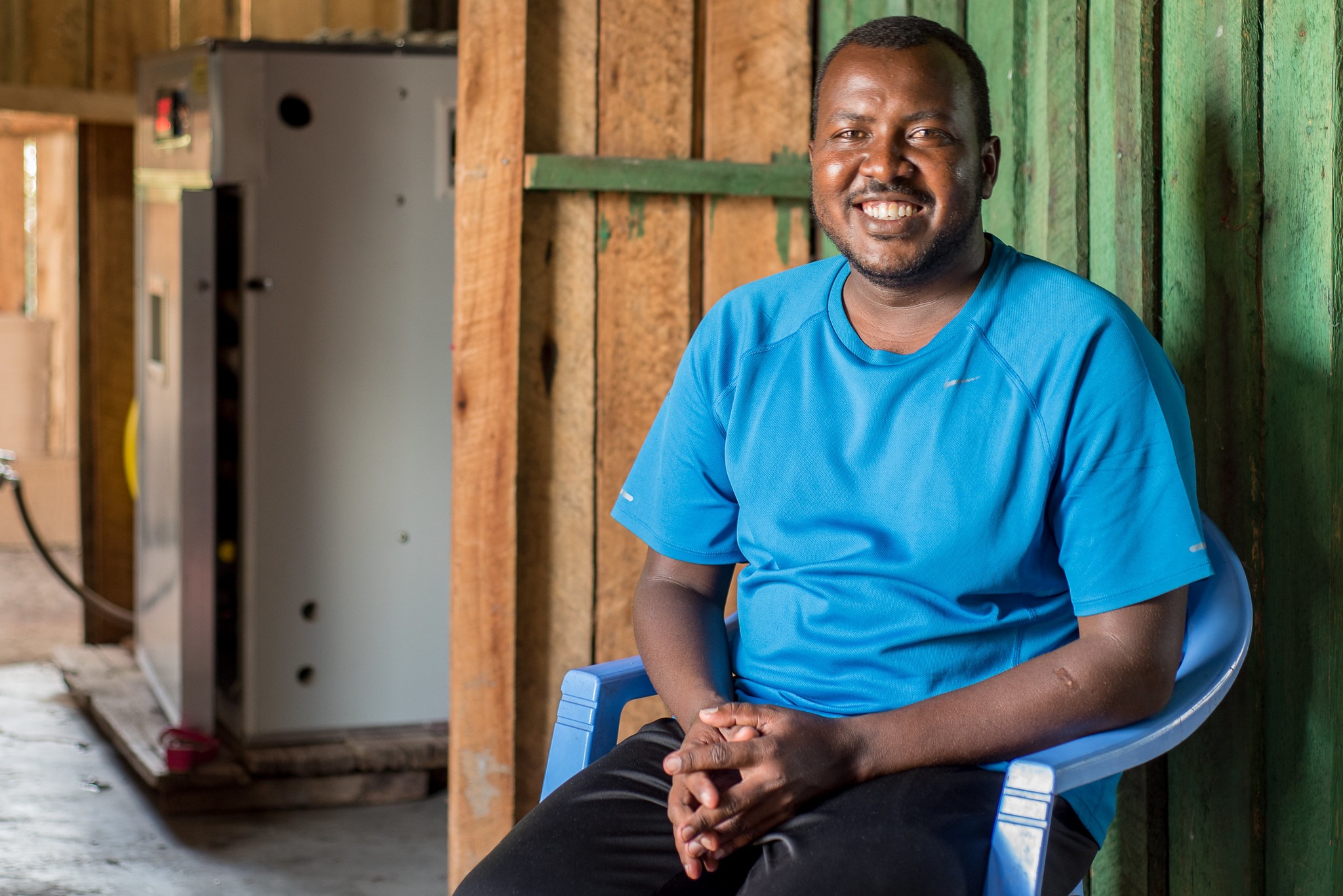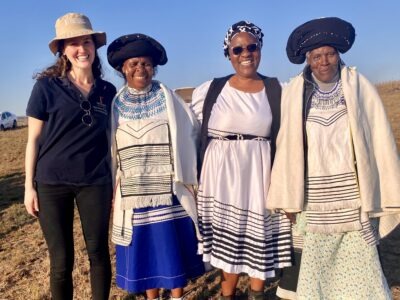
Since the COVID-19 pandemic began in March 2020, ACDI/VOCA programs around the world have shifted their approach to cope with the effects. Six months into the crisis, many industry leaders wonder what the future of aid will look like. How resilient development organizations and communities are will certainly affect how they face this uncertain future.
Discover how our programs in Kenya, Ghana, the Kyrgyz Republic, and Bangladesh are building the resilience of communities through investment, technology, and connectivity, as people and businesses continue to adapt to ever-changing conditions.
Poultry workers connect on WhatsApp in Kenya
In Northern Kenya’s arid and semi-arid lands, safety concerns related to the pandemic caused the main egg suppliers from Nanyuki to stop supplying eggs to Isiolo. To fix the egg shortage, the USAID-funded Feed the Future Kenya Livestock Market Sysetms Activity helped create a WhatsApp group for poultry workers. Now with 80 members, the group includes representatives from Kenchic Limited, a well-known supplier of breeding stock and extension services, as well as the Isiolo Poultry Farmers Association, a group of small- and large-scale poultry producers, egg hatchery operators, equipment suppliers, and processors.
Through the popular messaging app, farmers have accessed 2,000 eggs, marketed their products, and shared tips on poultry management. With this ability to coordinate, poultry workers will not only weather the shock of the pandemic more efficiently, but also steady the market and open the door to more growth opportunities.
Outgrower Business Networks Intermediaries In Ghana
The USAID-funded Feed the Future Ghana Agricultural Development and Value Chain Enhancement II (ADVANCE II) Project is working with 10 zonal and three regional outgrower business networks that support 27,000 smallholder farmers. These networks are ensuring that production and marketing activities aren’t disrupted by COVID-19 and that farmers preserve their place within the economy throughout the crisis.
In May and early June, the Feed the Future Ghana ADVANCE II Project’s technical advisors helped the networks take inventory of available supply lines and input sources. They also checked the availability of farm machinery for plowing fields, in light of the shortfall in available tractors, which the team uncovered during a recent rapid assessment. Knowing how many tractors were available allowed the networks to meet farmers’ needs. Outgrower business networks are now poised to play an important intermediary role in the agriculture market of Northern Ghana, even after the crisis subsides.
Investors avoid a slowdown in the Kyrgyz Republic
The COVID-19 crisis is preventing investors in the Kyrgyz Republic from assessing their pipelines because they cannot conduct in-person due diligence visits. Previously, Kyrgyzstani companies had the option to raise capital from other sources. Now, many lenders are prioritizing their existing portfolio companies, rather than seeking to expand their pipelines.
In-person visits may still be impossible. But the USAID Enterprise Competitiveness Project is expanding its support, firstly, to pipeline companies by helping them respond to due diligence requests and, secondly, to investors by helping them identify on-the-ground networks that can help obtain reliable, timely insights into the companies in question.
Farmers coordinate via smartphone in Bangladesh
When COVID-19 struck and in-person trainings became difficult to do safely, the USAID-funded Feed the Future BangladeshRice and Diversified Crops (RDC) Activity turned to information and communications technology. The RDC Activity partnered with a national mobile network operator, Robi, which began selling product bundles that included smartphones, SIM cards, and a Robi-developed social media app called Krishi Bhai.
Using the app, farmers could share photos and information with each other and ask for advice on their crops. Their access to mobile technology is minimizing the gaps in connectivity caused by COVID-19. To reach even more rural farmers, the RDC Activity is promoting the use of Robi’s products and apps among other companies. So far, nine companies have ordered 288 phones to take advantage of this service. Robi is also working with other USAID-funded programs to offer the low-cost bundle, expanding its rural customer base and enabling more distance learning to occur.





